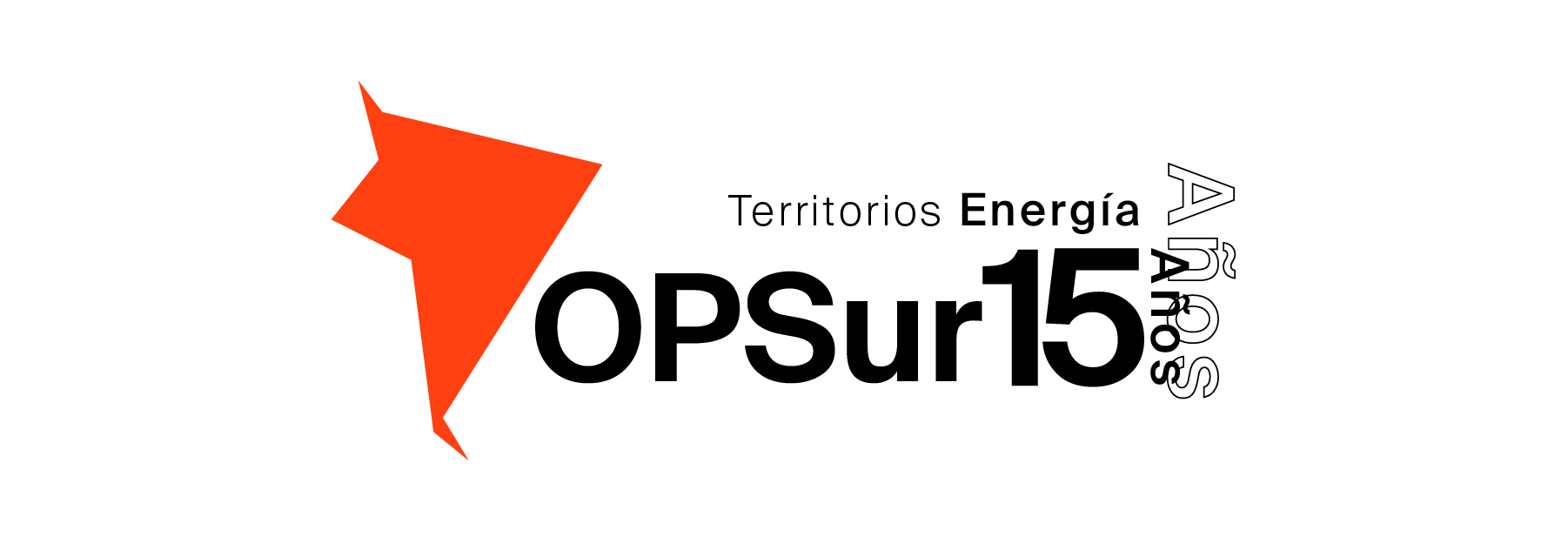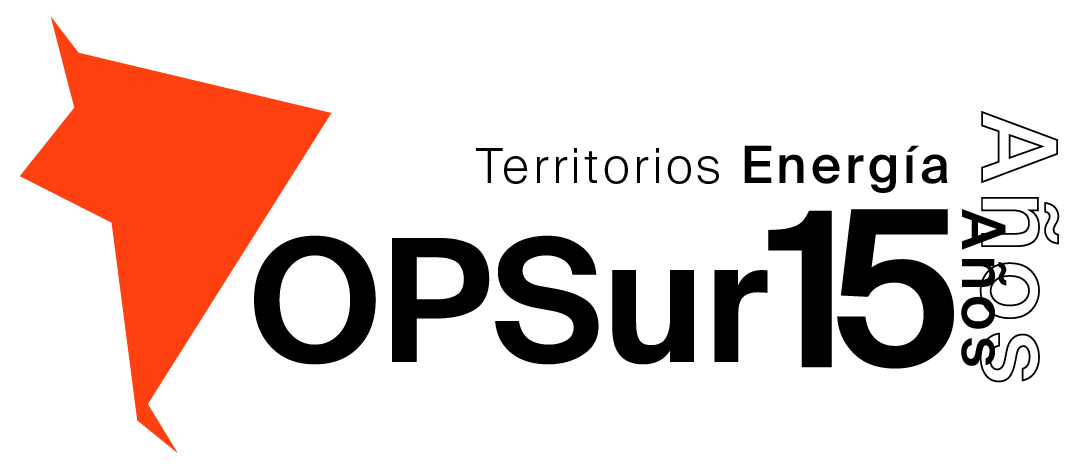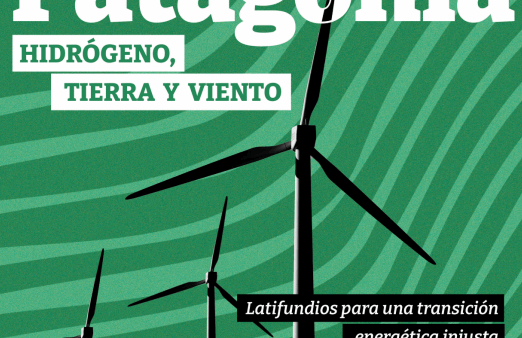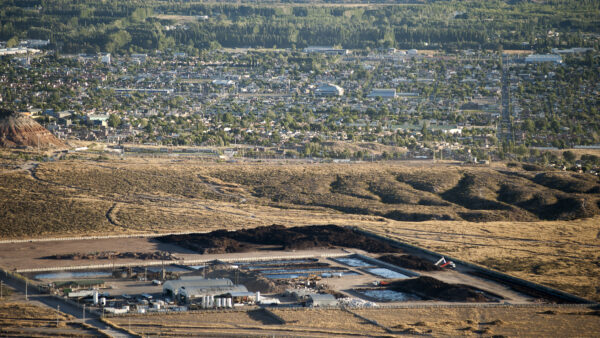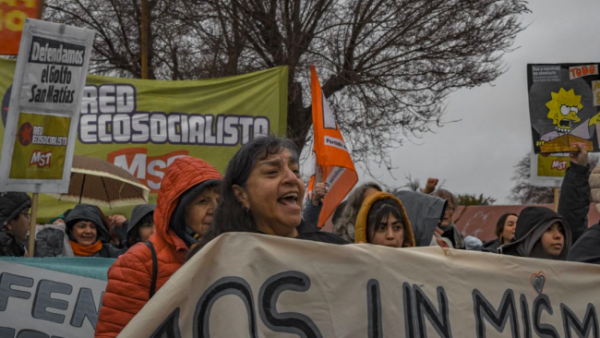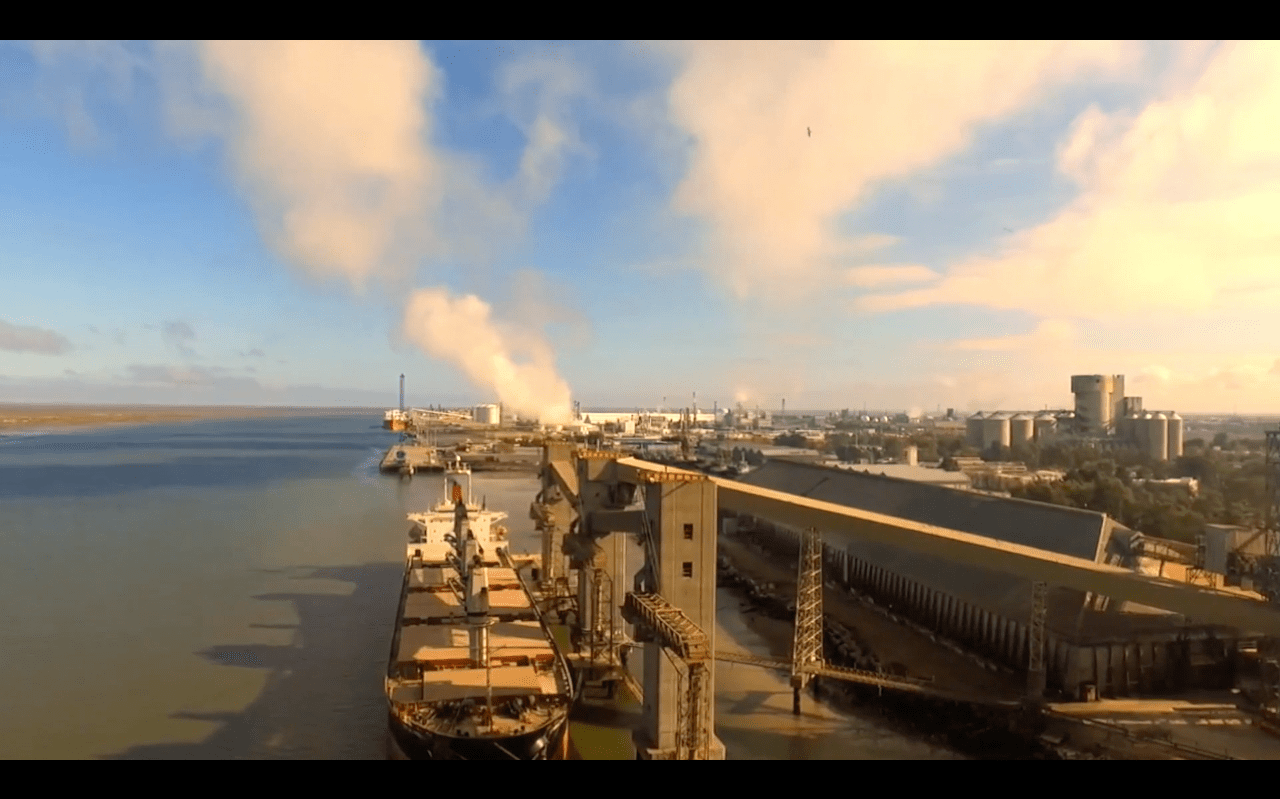 Por María Giovis / Toxic News
Por María Giovis / Toxic News
In October 2017, the documentary “Ingeniero White: Un pueblo que están matando” was released, a documentary marked by an urgency to denounce. To denounce how they are killing my hometown: Ingeniero White. To me, this is the place of my earliest affections, dirt roads, the smell of the sea, beloved friends and family. The first screening in the town was marked by an unmatched emotional intensity. A while has passed since the first screening, but that moment has stayed with me to this day. A local wrote:
A film to know what has happened to us.
A journey to the present, throughout our history.
A true story, told in the first person, by the most concerned neighbours, supported by irrefutable documentation.
The memory of our martyrs.
For those who turned out – and turn out – to be the victims of the progress we dreamt (or we were sold), when the illusion vanished and left us with the destruction of lives and diseases everywhere.
A film to reflect.
Perhaps to say enough.
These words assist me to continue spreading, screaming, denouncing. Such denunciation joins those of many others, for example the fishermen facing the contamination of the river, the mothers screaming their pain over the deaths of their beloved creatures who fell victims to the precarisation of work, the struggle and the pain of all those who see family members fall sick and die prematurely. How would it be possible to deny that they are killing my hometown? Along with my urgency to speak, there was the impossibility not to speak. This documentary, a tribute to my beloved brother who died suddenly from cancer in 2000, relieves my pain and appeases my conscience. It weaves the fabric of a social history in which everyday life unfolds amidst social pain. It is a documentary that narrates a collective pain, dolor país, the pain arising from so much destruction and death.
The Bahía Blanca Petrochemical Complex
Bahía Blanca’s petrochemical complex is one of the largest in the country, and it is constituted of three main sectors: refining, petrochemical, and chemical (see Info Sheet below).
Dow Chemical, one of the largest chemical multinationals in the world, proposed a project for a site in Bahía Blanca in 1967. Which characteristics of the Bahía Blanca port determined this choice? On the one hand, there were the gas pipelines Austral and Neuquino. Additionally, a few kilometres away, in General Cerri, there was a separation plant that processed the gas to produce ethane, the substance from which ethylene is made. On the other hand, the Ingeniero White port, with a depth of 45 feet, is suitable for large ships. Moreover, there are saltworks a few kilometres away, from which sodium chloride – the raw material for the chlorine cycle – is extracted. Finally, located in the area is a significant land transport infrastructure – albeit mainly constituted by railways –, an availability of basic facilities such as electricity, water, proximity to an urban centre, and exclusive access to some of the docks.

However, Dow Chemical withdrew from the project despite the fact that the authorities had authorised its participation in 1969, under decree 6908. The company returned decades later, when the entire infrastructure had already been built and made to function. The privatisations carried out by Carlos Menem’s Peronist government in the 1990s withdrew the state from production, and that space was occupied by the multinationals, whose capacity had doubled by the beginning of the 2000s.
Everything in Memory, in Collective Memory
The documentary is about the memory of many, to tell how they are destroying and killing their own people. Memory not to forget, to remember, for the future generations, perhaps to say enough. Enough with pollution. Enough with deaths.
The documentary is a denunciation of so-called “globalisation”, which is nothing but the current form of capitalism. Because it was exactly there, in Ingeniero White, that a petrochemical complex was established. Hence the question: is it acceptable to locate a petrochemical complex by a town and less than five kilometres away from a city like Bahía Blanca?
Throughout the years, we saw how, following the establishment of the petrochemical complex, diseases and deaths spread everywhere. Rare cancers, sudden deaths, all kinds of illnesses permeate the whitenses’ daily lives. The petrochemical complex has altered the town, root and branch. A town whose life was based on the railway, the port, and the Junta Nacional de Granos.[1] Every family had someone employed in these state-owned enterprises.
Sadly, sudden deaths by rare cancers have followed one another, hitting people of all ages. Residents have also been diagnosed with several organic diseases, skin diseases, respiratory difficulties, allergies, rhinitis, watery eyes, strokes. There were escapes of chlorine and ammoniac. Toxic clouds emanating from the industries’ chimneys, strong smells. Cracks in people’s houses caused by the building of port terminals for these enterprises. It became impossible to fish in the contaminated waters.
On 20 August 2000, there was a chlorine escape from the Solvay Indupa plant. As the day was windier than usual, the chlorine cloud was blown away towards the sea. After a few days, on 28 August, an ammoniac escape occurred at the Profertil plant, which produces a fertiliser called urea.
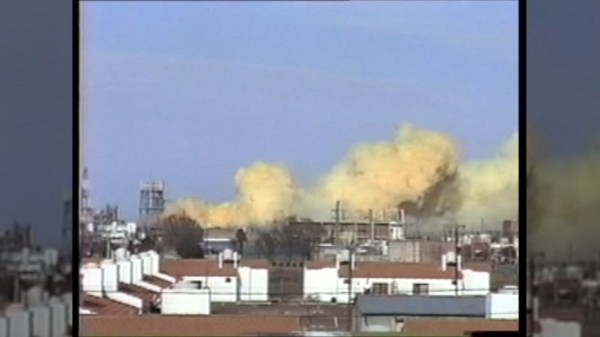
On 3 November 2015, an explosion at the Dow Chemical plant took place. According to the statement released by the company, a worker remained “shocked by the explosion” while others “had their hands traumatised by the loss of stability”. In another statement, the company specified: “At 2.15 pm, due to causes thus far unknown, there was an explosion with a fire in the reaction zone of the LDPE plant”.
Leaks and explosions continue to this day. The worst occurred on 28 June this year, once again at Dow Chemical. A strong roar made the whole city of Bahía Blanca tremble. For several hours, the population of Ingeniero White was left in a situation of uncertainty and fear, without knowing what to do.
A History of Struggle
Ingeniero White has a history of struggle I wanted to represent in the documentary, to show the kaleidoscope of events that marked the life of our country and, simultaneously, how such events were lived by the people, in the whitenses’ daily lives and particularly in my own experience. I wanted to represent such transformations, especially since the 1970s. On the one hand, to show the destruction of employment – since more than 10,000 used to work there – and the resistance carried out in different historical periods by the railway and port workers to defend their jobs, including the historical struggle of the railwaymen against the privatisation of state-owned enterprises and the mass layoffs that came with it. On the other hand, there is the establishment of the petrochemical complex, accompanied by the contamination of the river with heavy metals such as mercury, lead, cadmium, zinc, and the resulting loss of livelihood for the local fishermen. In addition, there is air pollution. The people are forced to breathe vinyl chloride and different smells emanating from chemical substances. And then there are terrifying acid rains on humid days. All this for an estimated employment of 1,400 workers.
Since the establishment and inauguration of the complex by Martínez de Hoz in 1981, all governments, of all political colours, continually sided with the multinational companies. The latter are not concerned about the pollution or the employment conditions of the workers. To them, “security” is merely an additional cost; and costs of this kind, our rulers say, can be eluded to “attract investment”. The destruction of this town is not an isolated fact. The problem is the voracity of capitalism on a global level, the conduct of multinational corporations in what was once called the “backyard” of imperialism. To them, our lives are worth nothing. In some places they bomb, pillage and force hundreds of thousands to migrate. Here, they install their firms to do things they could not do in their country of origin.
[1] The Junta Nacional de Granos (National Board for Grains) used to be a state regulatory agency for the cereals market.
